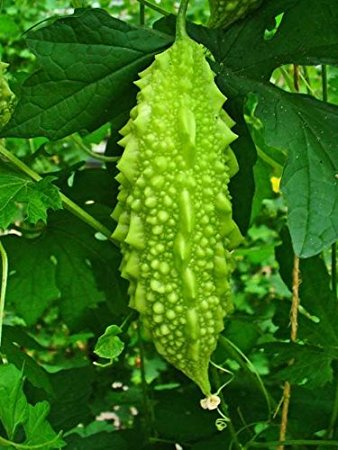By Periyava
Translation from
Tamil: V. Krishnaraj
ஆனந்தம் எங்கே?
:
தெய்வத்தின் குரல் (முதல் பகுதி)
1-12
Where is Bliss? Deivathin Kural1-12
We entertain innumerable desires. It is a universal certainty that we
and our desires part ways. Before the departure, if we outright dismiss
the desires on our own accord, to that extent, we remain happy. There
are as many bonds as there are desires and we tie ourselves invariably
to sorrow. As we attenuate our desires one by one, the cause of sorrow
diminishes. Before this life ends, and we relinquish all desires, we
need not suffer any distress; we can merge with Paramātma and attain
endless Bliss.
We are proud thinking we possess special qualities, unfound in animals.
What special things has a person done, not done by animals? Dog, fox,
cockroach… eat, procreate, and die. Generally, man does nothing more
than what animals do. What is there in his special wisdom to make him
proud? It is finding a wisdom greater than everything else and
discovering the paths for everlasting Bliss. Does man receive
everlasting Bliss?
Cogitating about it, what appears as the supreme aim is Jñāṉam, Āṉantham
(bliss), and Nām (We) are one. When
we realize the dawn of Spiritual Wisdom, we discover we are Jñāṉa-maya
Bliss (ஞான
மயமான ஆனந்தம்).
Jñāṉa-mayam =
Plenitude of Wisdom.
We do not obtain Bliss from external objects. Bliss comes from inside
us. Our true form is Bliss, which we hide with
a-jñāna
(Nescience). Even under those conditions When we have the feeling of
belonging, ‘mine’, we get Bliss from it. If there is no relationship
with ‘I’, Bliss leaves us. Let me present an example. A person has farm
lands. He is getting more and more produce year after year. Since he
feels he owns the land, he feels happy every time the yield is greater.
He is in bliss. Later, the yield gets smaller. He sells the land and
registers a sale and a transfer. Next year, there is a greater yield.
The seller feels heartburns, thinking the buyer had good luck taking
sides with him. That bygone relationship (with the land) brought
happiness. The same higher yield in the hands of the buyer causing Bliss
(in the buyer) causes heartburn in the erstwhile seller.
Another example.
Parents bring children to me, say they have insanity and request
me to find relief or cure. A father took the opposite stance. He married
second time. His second wife did not get along with the son of the first
wife. A great fight ensued and resulted in breakup of the family. The
father stood by his second wife. He abandoned his son born to his first
wife. The father came to me and said, “My first son cast a curse, ‘Pilly
Sūṉyam (=
பில்லி சூன்யம்
=
witchcraft)’ on
my second wife. It is our good fortune that it blew back on him.”
All fathers are distraught when faced with
citta-p-piramai (stupefaction, insanity) in their children. This father
was happy in his son’s condition. Why? He lost his sense of mine
(filialness) with his son. He had a sense of mine regarding his second
wife. Since she suffered no injury from the curse, the father felt
happy.
There is so much bliss in Māyā-bound ‘I.’
Just guess how much bliss the free ‘I’ with complete Jñāṉam must
have? We taste the sweetness of
jaggery when added to the bitter gourd. The bitter gourd in relation
with the jaggery tastes sweet. It is because of the jaggery, that the
bitter gourd tasted sweet. Just think of the sweetness of the jaggery
alone. In this world of bitterness and misery, the ‘I’s association with
the Māyic rays of light gives us the sweet bliss. If ‘I’ by itself
stands alone, must it not be much of a sweet Bliss? When a holey pot
covers a light, the slender rays of light emerge from the small holes.
The Ātmā Light covered by the
Māyā radiates its bliss light, faint as they are, through the Indriyas’
holes. Indriyas = organs. If we break the Māyā-Pot, we can become the
plenitudinous Bliss-Light. The intensity of the emerging light depends
on the size of the holes in the pot. The Light inside the pot is One
Luminous Light. If we break the Māyā-pot, all phenomenal differences in
the world disappear and all appear as Bliss Supreme.
Figure
1Momordica
charantia: Bitter gourd.
பாகற்காய்
How do we break the
Māyai? Simply by curbing
our desires. Mind is the source and propagator of desires. Therefore, we
must curb the mind. We should not think curbing the mind is death and
absence of Sakthi. On the contrary, it is the basis of all Sakthi.
Those who are handicapped in one part of the body have
compensatory higher ability in another organ (example: intellect.
Stephen William Hawking). When you block one channel, the other
channel gets more water flow. Ātmā
Sakthi undergoes dissipation through the Indriyas (organs). If you
control or block those organs, all sakthis join in Bliss and bring
goodness to the world.
Ṛṣis with the Sakthi of
Ātmā Jñāṉam are the examples. They were travelers to the multiple
worlds, and could amass knowledge and wisdom. They heard sounds in the
sky, not apprehended by us, and gave us the Mantras. How do we curb our
desires? How do we bring the mind to a standstill? How do we attain
everlasting Bliss? Just do what the Vedas tell us. At the end, we will
attain Supreme Bliss. Let Paramēṣvara do us the favor.

